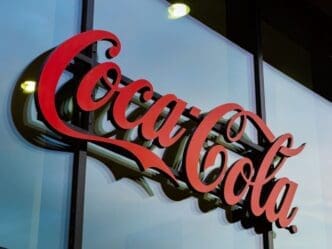James Quincey, CEO of Coca-Cola since 2017, initiated a strategic transformation for the beverage powerhouse amid declining soda consumption due to health concerns. The move involves transitioning towards more health-conscious offerings, such as Fairlife’s ultrafiltered milk, a product that has surpassed expectations.
Coca-Cola’s acquisition of Fairlife began as a joint venture with Select Milk Producers, aiming to tap into the niche market of ultrafiltered milk. The brand, launched in 2012, gained traction with its unique packaging and appeal compared to other alternative milks like almond and pistachio. By 2020, Coca-Cola fully acquired Fairlife for an initial $980 million, and its success has soared, heavily driven by its prominence in the health and wellness sector on social media.
Despite rising food prices and consumer spending shifts, Fairlife’s unique ultrafiltration process, which reduces lactose and sugar while boosting protein content, has attracted a steady consumer base. The brand’s Core Power protein shake remains a favored product, with sales in 2022 surpassing the $1 billion mark, indicating significant market penetration.
However, the path to growth is not without challenges. Fairlife projects a slowdown in growth for 2025, partially due to Coca-Cola’s broader reliance on carbonated beverages, which still dominate sales. In contrast to Coca-Cola’s acquisition of Costa Coffee, Fairlife has significantly outperformed expectations.
An interesting observation by analyst Kaumil Gajrawala from Jeffries highlights that the purchase agreement included an earn-out clause, allowing Coca-Cola to base payments on Fairlife’s success. Now, the acquisition costs could total $6.2 billion, underscoring the brand’s value to Coca-Cola.
The North American market has shown willingness to invest in health-focused products like Fairlife’s milk, according to Citi analyst Filippo Falorni. This market strategy aligns with the growing consumer focus on protein intake, solidifying Fairlife’s position amid a $6 billion protein shake industry.
Yet, risks persist. Popularity on platforms like TikTok can be fleeting, and Fairlife’s reputation was recently challenged by a $21 million settlement over animal welfare concerns. Moreover, Coca-Cola’s plans for facility expansions and brand diversification indicate ongoing efforts to sustain momentum beyond Fairlife’s current success.
Coca-Cola’s investment in Fairlife exemplifies its strategic pivot towards diversified and health-centric products. While the journey involves navigating market fluctuations and addressing ethical concerns, Fairlife’s ongoing success reflects Coca-Cola’s ability to adapt and thrive in evolving consumer landscapes.








